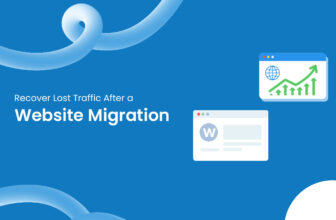
Search engine optimization (SEO) is a crucial part of any modern business strategy. In an increasingly digital world, businesses need to ensure they are visible online to attract potential customers. But SEO is more than just ranking high on search engines—it provides a variety of benefits that can transform your business and drive long-term success.
In this article, we’ll explore what SEO is, its key components, and the many benefits it offers to businesses that invest in it.
What is SEO?
SEO, or Search Engine Optimization, is the practice of optimizing a website and its content so that it appears higher in search engine results pages (SERPs) for specific keywords or phrases. The higher your website ranks in search results, the more likely it is that users will click on it, driving organic (unpaid) traffic to your site.
SEO is built on three pillars: on-page SEO, off-page SEO, and technical SEO.
On-Page SEO
On-page SEO refers to all the optimizations you make directly on your website to improve its search engine rankings. This includes optimizing your content, titles, meta descriptions, and headings for relevant keywords. Keyword optimization is critical because it helps search engines understand what your content is about and how it matches user search queries.
Off-Page SEO
Off-page SEO focuses on building your website’s authority and reputation by earning backlinks from other credible websites. Search engines, especially Google, consider backlinks as a sign of trustworthiness and relevance. The more high-quality backlinks your site has, the more likely it is to rank higher in search results.
Technical SEO
Technical SEO refers to optimizations that improve your website’s overall performance and ease of access for search engine crawlers. This includes ensuring your site is mobile-friendly, improving page load speed, using HTTPS, and creating an XML sitemap.
Top Benefits of SEO
SEO offers several distinct advantages for businesses, ranging from increased traffic to better user experiences. Let’s break down some of the key benefits:
1. Drives Organic Traffic
One of the most immediate benefits of SEO is increased organic traffic. Ranking highly for targeted keywords ensures your business is more visible to potential customers who are actively searching for the products or services you provide. Unlike paid ads, which require constant investment, organic traffic is essentially free and offers a sustainable way to attract visitors over time.
2. Enhances User Experience (UX)
A successful SEO strategy isn’t just about attracting more traffic—it also involves improving the overall user experience on your website. Google’s algorithms favor websites that are fast, mobile-responsive, and easy to navigate. This means optimizing your site for SEO often leads to a better experience for your users, which in turn reduces bounce rates and increases time spent on your site.
3. Long-Term Return on Investment
While SEO does require an upfront investment of time and resources, it offers a long-term return that outpaces many other forms of digital marketing. Once your content is optimized and your site has established credibility with search engines, you can continue to drive organic traffic with minimal ongoing costs. This makes SEO a more sustainable and cost-effective solution compared to PPC advertising, where traffic stops as soon as you stop paying for ads.
4. Builds Brand Credibility
SEO helps build brand credibility and trust. When your website consistently appears in the top search results, users are more likely to view your business as a trusted authority. Additionally, the credibility of your website improves when you earn backlinks from reputable sources, signaling to search engines and users that your site offers valuable content.
SEO vs. Paid Advertising: Which is Better?
A common question among business owners is whether they should invest in SEO or paid advertising like Google Ads. While both have their merits, they serve different purposes.
Paid advertising can bring immediate results, as your website can appear at the top of search results within minutes of launching a campaign. However, the moment you stop paying for ads, your visibility disappears. On the other hand, SEO takes longer to produce results but offers more sustainable, long-term benefits. Organic traffic from SEO is free, whereas paid ads can be costly, especially for competitive keywords.
Additionally, users tend to trust organic search results more than paid ads, as they perceive organic listings as more credible and authoritative.
Content: The Heart of SEO
Content is the foundation of any successful SEO strategy. Search engines, especially Google, prioritize websites that offer high-quality, relevant content that satisfies user intent. This means your content needs to be informative, engaging, and optimized for the right keywords.
When planning your content, think about addressing common questions or pain points your target audience has. Creating well-structured, easy-to-understand content—like an executive summary presentation for board meetings—can help your business communicate effectively. In fact, having a streamlined executive summary presentation can help organize complex ideas into a digestible format for decision-makers, improving the overall communication process.
High-quality content also encourages users to spend more time on your site and engage with your brand, which are positive ranking signals for search engines.
Local SEO: A Game Changer for Local Businesses
If your business serves a local market, local SEO should be an essential part of your strategy. Local SEO involves optimizing your website to rank for location-specific searches. By targeting keywords like “near me” searches, optimizing for local backlinks, and creating content around local topics, you can improve your visibility in your area.
One key tactic in local SEO is optimizing your Google My Business profile. This ensures that your business appears in Google’s local pack—those coveted top three listings that show up when users search for services in a specific geographic area. Local reviews also play an important role in ranking, as they build trust and credibility with both users and search engines.
How SEO Analytics Drive Success
SEO success is rooted in data. Monitoring and analyzing the performance of your SEO strategy is crucial to ensuring long-term success. Tools like Google Analytics, SEMrush, and Ahrefs allow you to track key performance indicators (KPIs) such as organic traffic, bounce rates, and keyword rankings.
Analyzing this data can help you refine your strategy, identify what’s working, and uncover areas for improvement. For example, if you notice that certain pages are underperforming, you can optimize them by improving content quality, adjusting keyword use, or enhancing on-page SEO elements.
Regularly monitoring your SEO performance also helps you adapt to algorithm changes and stay ahead of competitors.
The Future of SEO: Trends to Watch in 2024 and Beyond
As search engines become more sophisticated, SEO is continuously evolving. To stay competitive, it’s essential to keep up with the latest trends and adapt your strategies accordingly.
Voice Search Optimization
Voice search is on the rise, thanks to the growing popularity of smart speakers like Amazon’s Alexa and Google Assistant. Users are increasingly searching using conversational phrases, which means optimizing for long-tail keywords and natural language queries is becoming more important.
AI and Machine Learning
AI and machine learning are playing an increasingly important role in how search engines rank websites. Google’s AI system, RankBrain, uses machine learning to better understand search intent and deliver more accurate results. As AI continues to develop, SEO strategies will need to adapt to how these systems interpret content and user behavior.
Mobile-First Indexing
Google has officially moved to mobile-first indexing, meaning the mobile version of your website is now the primary version that Google uses for indexing and ranking. This highlights the importance of mobile optimization in any SEO strategy, especially as mobile searches continue to surpass desktop searches.
Conclusion: Why SEO is Essential for Your Business
SEO is a powerful tool that offers long-term benefits for businesses of all sizes. By improving your website’s visibility, driving organic traffic, and enhancing the user experience, SEO provides a cost-effective way to attract high-quality leads and build brand credibility.







